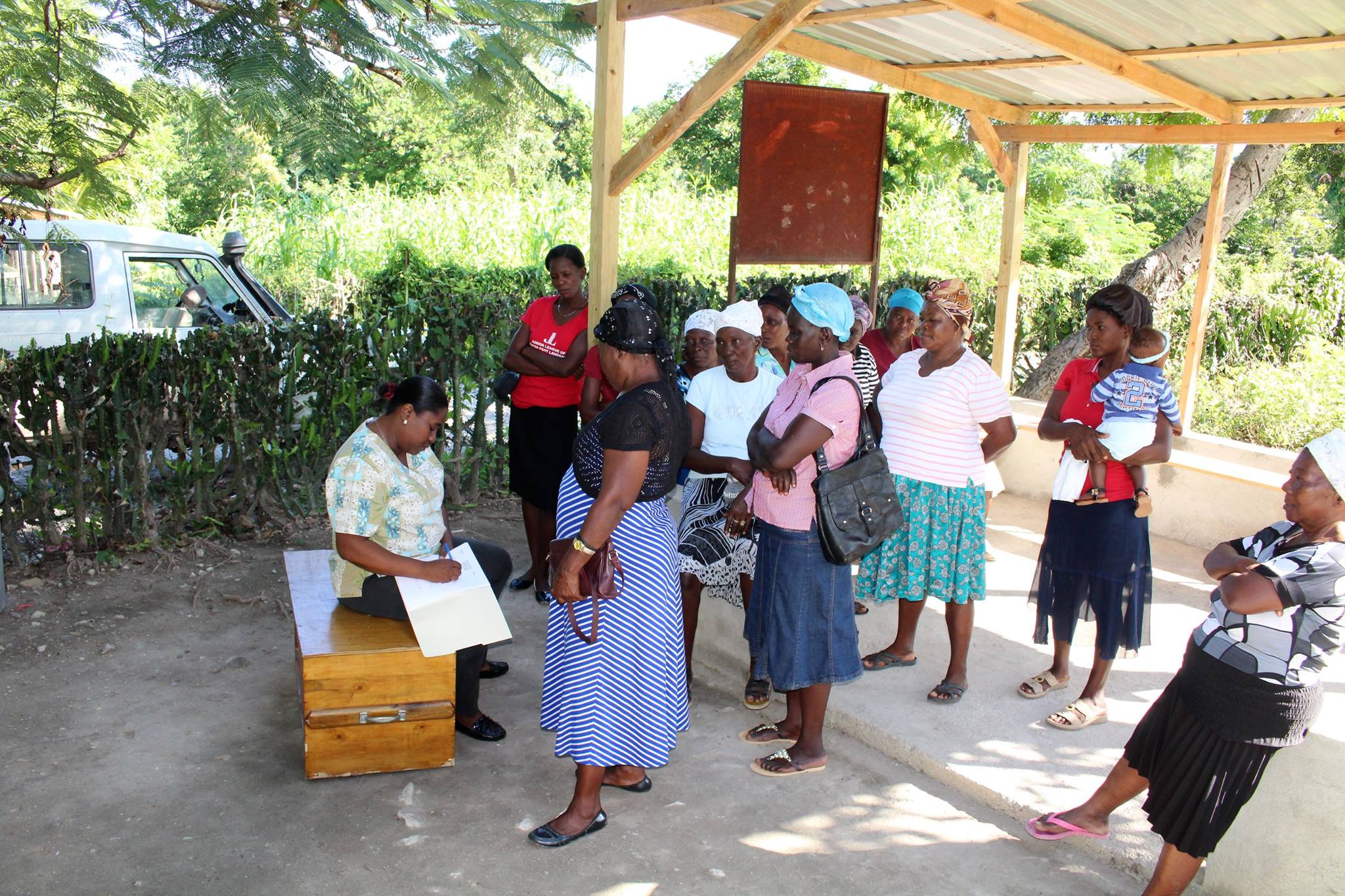Haitian Health Care Workers Stand Strong
Erlose Cerfrere registering patients in rural dispensary
Gang-associated abductions and killings, looting, attacks on institutions, and road-blockades in Port-au-Prince hostage have become more frequent in the past year. The violence is now moving into the peaceful countryside. The police, with fewer numbers and weapons, have been unable to curb the gangs from terrorizing the capital.
The escalating violence and political instability have devastated the economy. Food is scarce and the price of essential items, e.g. rice and beans, have double in the past year. In a country where 4.5 million people live in extreme poverty, hunger and malnutrition among children is shockingly widespread.
The resilience and courage of the Haitian health care workers is the untold story of the Haitian
crisis. MFP staff and co-workers continue to see large numbers of patients at the Alma Mater
Hospital and in dispensaries in remote hamlets, in spite of the danger of travelling deserted
country roads. The story of Erlose Cerfrere illustrates the dedication of Haitian care givers to
help people in desperate need. We were fortunate to recruit Erlose to MFP, and over the period of twelve years, she has risen from clinic nurse to site manager of MFP programs at Alma Mater Hospital.
Erlose grew up in Verettes, a small, quiet city of 20,000 people forty miles north of Port-au
Prince (PAP). The town is noted for its excellent education system. After graduating from high
school, Erlose entered Notre Dame University of Haiti and obtained a Bachelor’s of Science
degree in Nursing. Drawn to working with those in need, she took a position caring for AIDS
patients in a poor section of the capital.
Erlose’s life has become increasingly difficult in the past year. She lives at the hospital and is unable to travel to her home in Verettes because of road blockades by armed gangs. On Fridays, she leaves the hospital to go to the open market to buy food for herself and for women in the MFP palliative care program. She is part of the MFP team that brings food and medication to women in the program suffering from advanced cancer.
Much of Erlose’s time is devoted to assisting the women who rely on the MFP women’s health
program in our hospital and mobile clinics and most of all, in educating women on how to lead a
healthy lifestyle. She often says, in the midst of the crisis, n’ap kenbe fò, we are standing strong. Erlose, and other courageous Haitians like her, will help lead Haiti to a better future.

